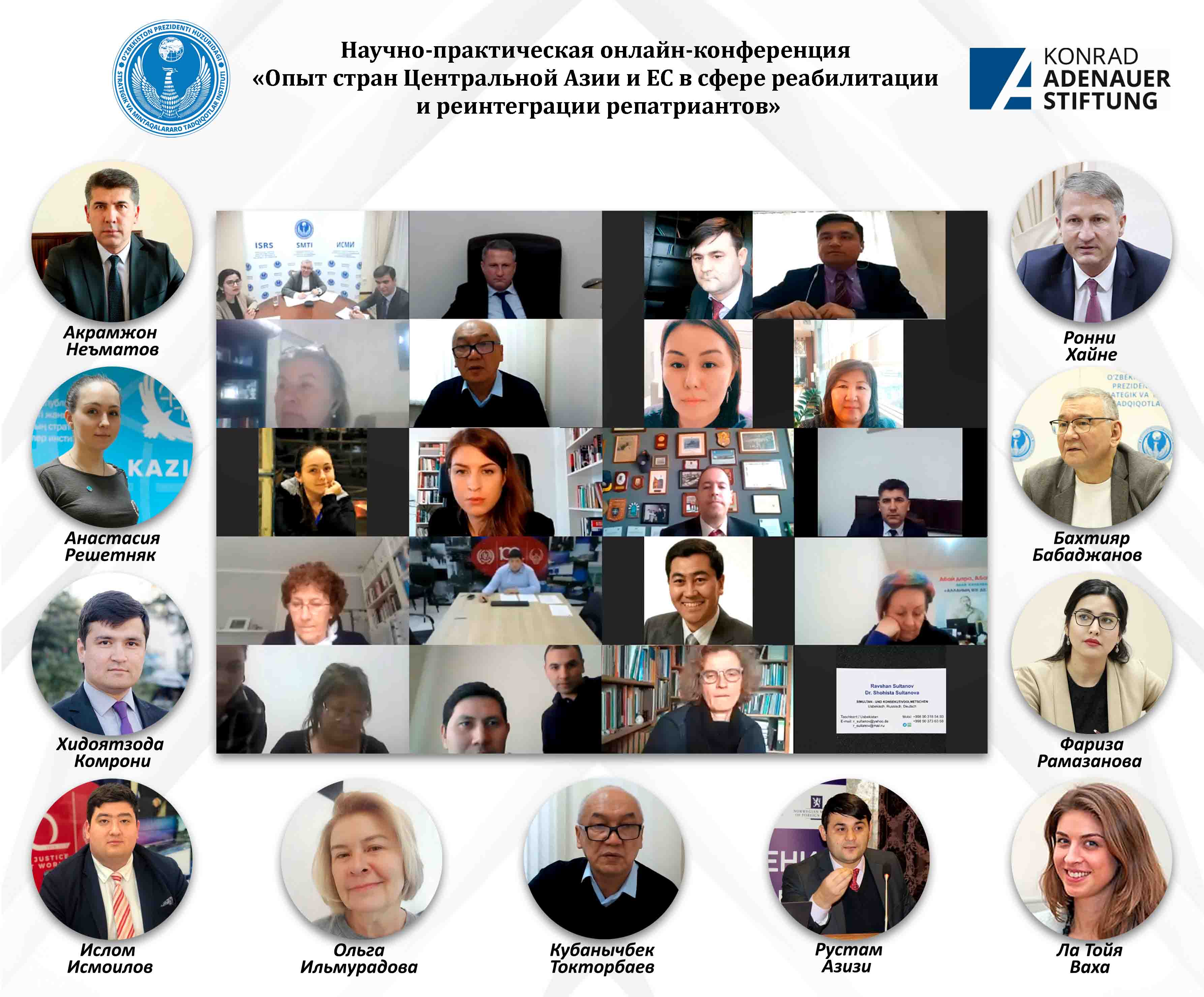Central Asian experience in the focus of attention of the international community

A scientific and practical conference was held on “The experience of the Central Asian countries and the EU in rehabilitation and reintegration of repatriates”.
The virtual dialogue was organized by the Institute for Strategic and Regional Studies under the President of the Republic of Uzbekistan (ISRS), the Konrad Adenauer Foundation Representative Office in Central Asia.
The forum brought together about 50 experts and specialists from leading think tanks of 10 countries, including Central and South Asia, the EU, Singapore and Malaysia, as well as international organizations – EU, OSCE, UNICEF and UN missions in Uzbekistan.
The meeting made it possible to openly exchange information, opinions and experience on the issues of rehabilitation and social reintegration of repatriates from the zones of military conflicts.
First Deputy Director of the Institute for Strategic and Regional Studies under the President of the Republic of Uzbekistan Akramjon Nematov noted that comprehensive measures are being taken in Uzbekistan to deradicalize people who have returned from zones of armed conflict.
Large-scale activity is underway to solve the social and domestic problems of repatriates, their employment, training in demanded professions, and ensuring unhindered access to high-quality healthcare and education services.
This approach, he noted, today finds recognition throughout the world. This is confirmed by the holding in September 2020, within the framework of the 75th session of the UN General Assembly, a side event to review the experience of the Central Asian countries in this sphere. UN high representatives recommended other countries to use it as a model.
Emphasizing the importance of the event, the Authorized Representative of the Konrad Adenauer Foundation for Central Asia Ronnie Heine noted that the exchange of information, expertise and experience is important for the international community. This practice contributes to finding the best ways to address the issue of deradicalization. At the same time, the goal should not be to punish these persons, but to return them to the ranks of full-fledged citizens capable of contributing to the development of society.
Following the event, the participants noted that holding such open discussions will contribute to the development of effective and efficient measures aimed at de-radicalization of repatriates.






